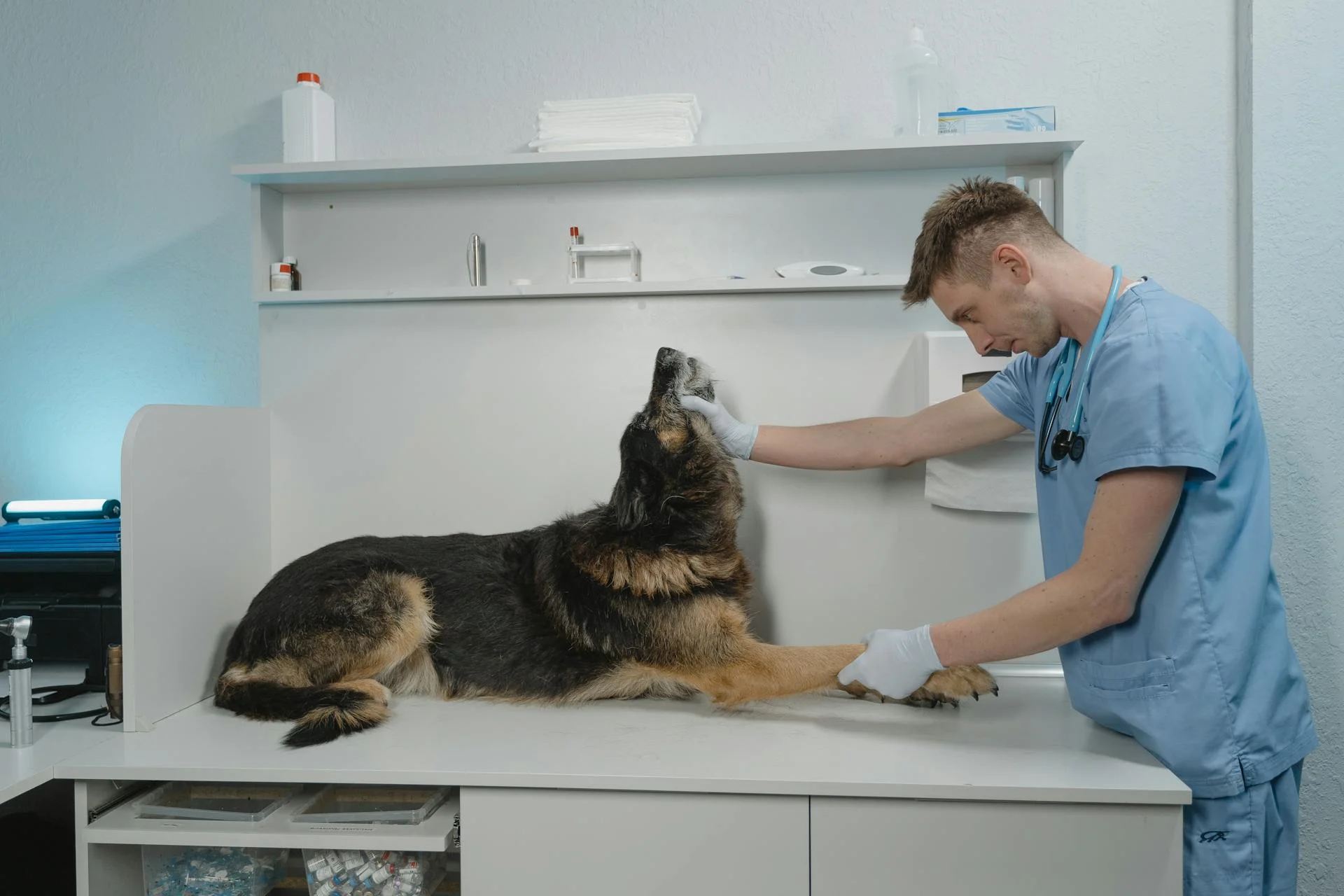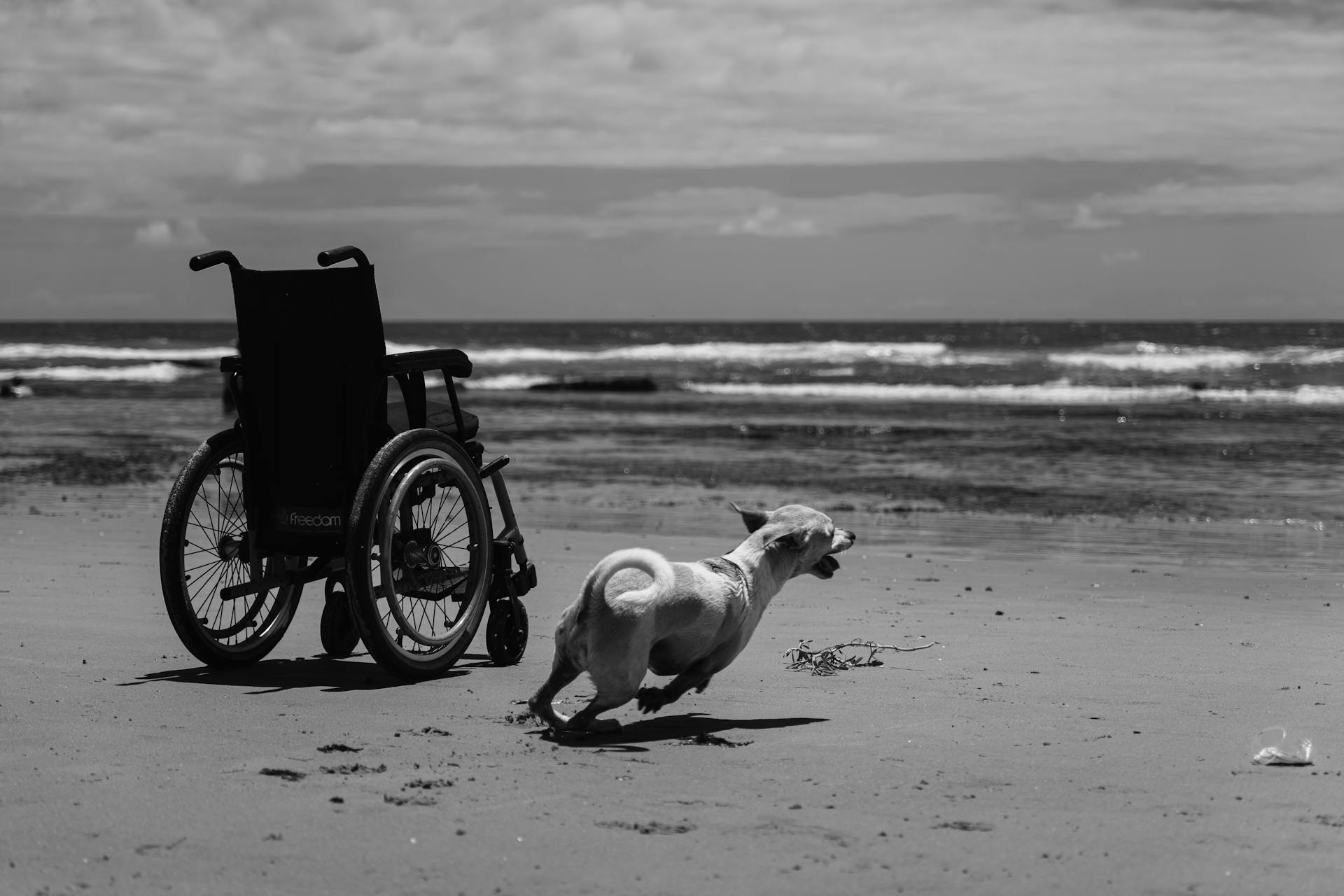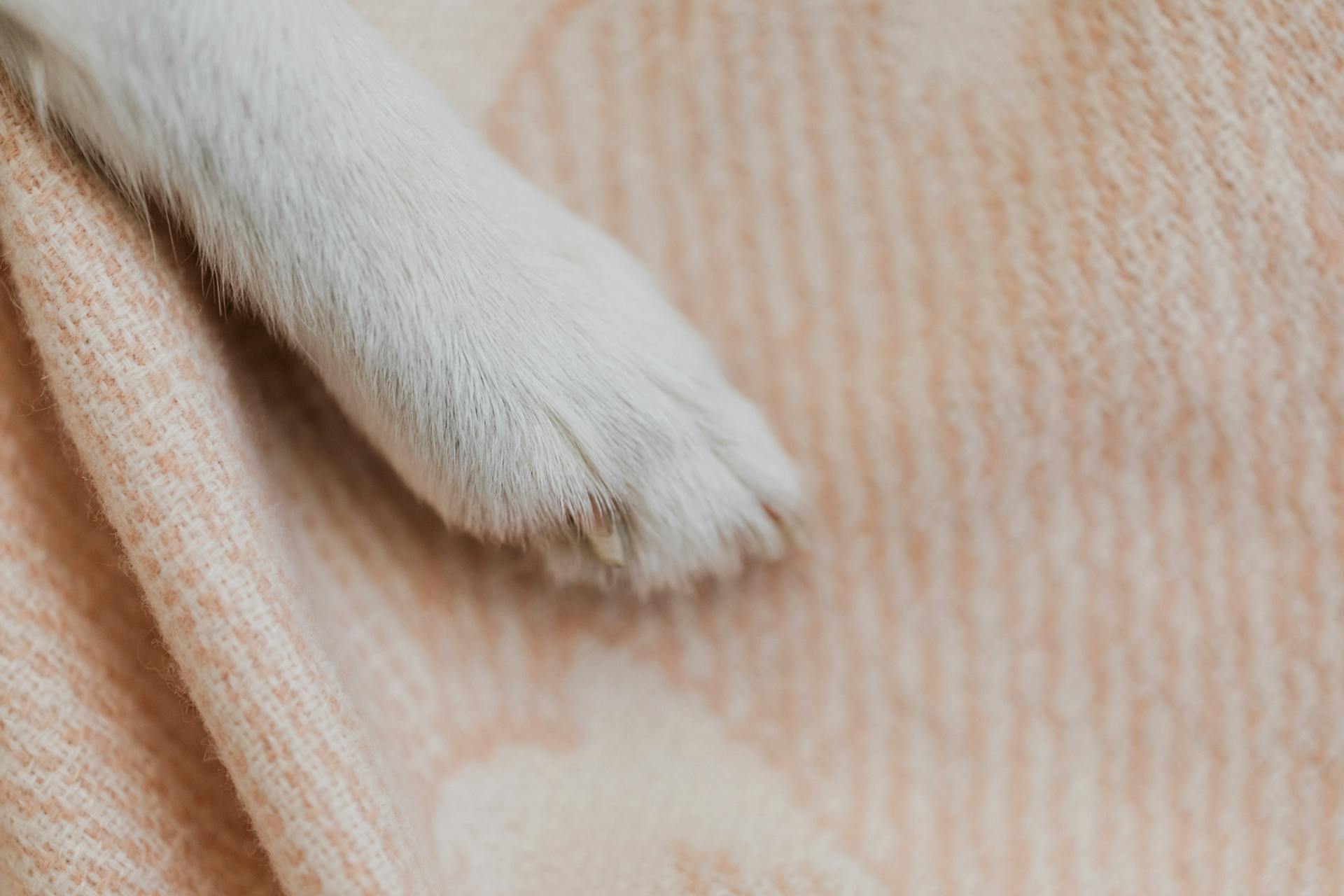
If you've recently received a Degenerative Myelopathy Test Kit, you're likely wondering what to expect. The test kit is a valuable tool for identifying the genetic mutation that causes Degenerative Myelopathy (DM) in dogs.
The test kit typically includes a cheek swab or blood sample collection device. This is used to collect a DNA sample from your dog, which is then sent to a laboratory for analysis.
A positive test result indicates that your dog is a carrier of the DM mutation, while a negative result means your dog does not have the mutation.
Degenerative Myelopathy
Degenerative Myelopathy is a distressing inherited neurological condition that affects a dog's spinal cord.
Degenerative Myelopathy occurs when a dog inherits abnormal genes from both parents, which doesn't inevitably lead to the condition, but a dog with abnormal genes is very likely to develop it over time.
A dog that inherits abnormal genes is almost certain to pass on the abnormal genes to any offspring.
The symptoms of Degenerative Myelopathy usually don't present until the dog is around 8-10 years old, although some dogs are affected at an earlier age.
The condition causes a dog's hind legs to become weak, and eventually, it may render the dog unable to walk at all.
There is no fixed pattern associated with Degenerative Myelopathy, but the loss of limb function is extremely distressing for both pet and owner.
Degenerative Myelopathy causes cells that send and receive brain signals to break down, resulting in symptoms like difficulty walking and an unsteady gait.
The disease progresses over time, causing loss of bladder control and an inability to use the front legs.
Degenerative Myelopathy does not cause the dog any pain, but the loss of limb function is extremely distressing for both pet and owner.
Testing and Diagnosis
Degenerative Myelopathy can be diagnosed with a simple DNA test, which involves a swab from the inner cheek of your dog. This test, also known as a Degenerative Myelopathy DNA Test, can identify if your dog is a carrier of the mutated SOD1 gene.
The test will give one of three possible outcomes: a CLEAR result, a CARRIER result, or an AT RISK result. A CLEAR result shows that your dog has inherited two mutation-free genes and will not develop Degenerative Myelopathy.
A CARRIER result indicates that your dog has inherited one normal copy and one mutated copy of the gene, meaning they have a strong likelihood of passing on the condition to offspring but not of developing it themselves.
An AT RISK result shows that your dog has inherited two copies of the mutated gene and is highly likely to develop Degenerative Myelopathy over its lifetime.
The test results will also inform you whether your dog is a carrier of the mutation, which is essential information if you're considering breeding your dog. This will help you make an informed decision about whether to breed from your dog.
The Degenerative Myelopathy DNA Test is a convenient and affordable option, costing just $75, and can be done with a simple buccal swab.
Affected Breeds and Conditions
Degenerative myelopathy can affect any breed of dog, but some breeds are more prone to the condition. German Shepherd dogs were initially thought to be the only breed affected, but it's now understood that other breeds can also be at risk.
The Degenerative Myelopathy DNA Test can be carried out on all breeds, making it a valuable tool for breeders and pet owners alike.
However, it's worth noting that Bernese Mountain Dogs have an additional risk factor, known as the SOD1-B marker, which is specific to their breed.
This test can help identify the SOD1-A mutation, which is a significant risk factor for degenerative myelopathy in many breeds.
For your interest: Embark Dog Dna Test Breed & Health Kit
Understanding Test Results
Degenerative Myelopathy DNA testing results can be one of three possible outcomes: CLEAR, CARRIER, or AT RISK.
A CLEAR result means your dog has inherited two mutation-free genes from its parents and will not develop Degenerative Myelopathy. This is great news, and you can rest assured that your dog won't pass on faulty genes to its offspring.
A CARRIER result indicates that your dog has inherited one normal copy and one mutated copy of the gene. This means your dog is unlikely to develop the condition itself but can pass on the mutated gene to its offspring, putting them at high risk of developing Degenerative Myelopathy.
The cost of Degenerative Myelopathy DNA testing is $75, which is a relatively affordable price considering the valuable information it provides.
An AT RISK result means your dog has inherited two copies of the mutated gene and is highly likely to develop Degenerative Myelopathy over its lifetime. Unfortunately, it will also pass on the mutation to any offspring, putting them at high risk of developing the condition.
Here's a summary of the three possible test results:
Understanding your dog's test results can help you make informed decisions about its health and well-being.
Frequently Asked Questions
How do you test for degenerative myelopathy?
Degenerative myelopathy is diagnosed through a combination of physical examination, medical history, and diagnostic tests, including X-rays and spinal imaging to rule out other conditions. Diagnostic tests help identify DM in its early stages, allowing for timely treatment and management.
How much does a degenerative myelopathy test cost?
The cost of a degenerative myelopathy test is $69. Get a reliable and affordable genetic test to help identify the risk of this inherited disease in your dog.
What can be mistaken for degenerative myelopathy?
Degenerative myelopathy can be mistaken for several other conditions, including spinal diseases, tick-borne illnesses, and hormonal disorders, which may present similar symptoms. If you suspect your dog has DM, it's essential to consult with a veterinarian to rule out these potential mimics and get an accurate diagnosis.
What are the first signs of degenerative myelopathy?
The first signs of degenerative myelopathy include difficulty rising, hind limb weakness, and incoordination. These symptoms often start with subtle changes, such as scuffed toenails on the hind limbs, and can progress rapidly if left untreated.
Sources
- https://dnacenter.com/testing-pets-vets/dog-dna-testing/inherited-disease-screening/degenerative-myelopathy-dm-in-canine-breeds/
- https://www.genomia.cz/en/test/dm/
- https://www.thekennelclub.org.uk/shop/dna-testing/the-kennel-club-dna-testing-services-individual-dna-tests/degenerative-myelopathy-dm-star/
- https://readyfortollers.com/degenerative-myelopathy-dm/
- https://www.affinity-dna.com/degenerative-myelopathy-dna-testing/
Featured Images: pexels.com


